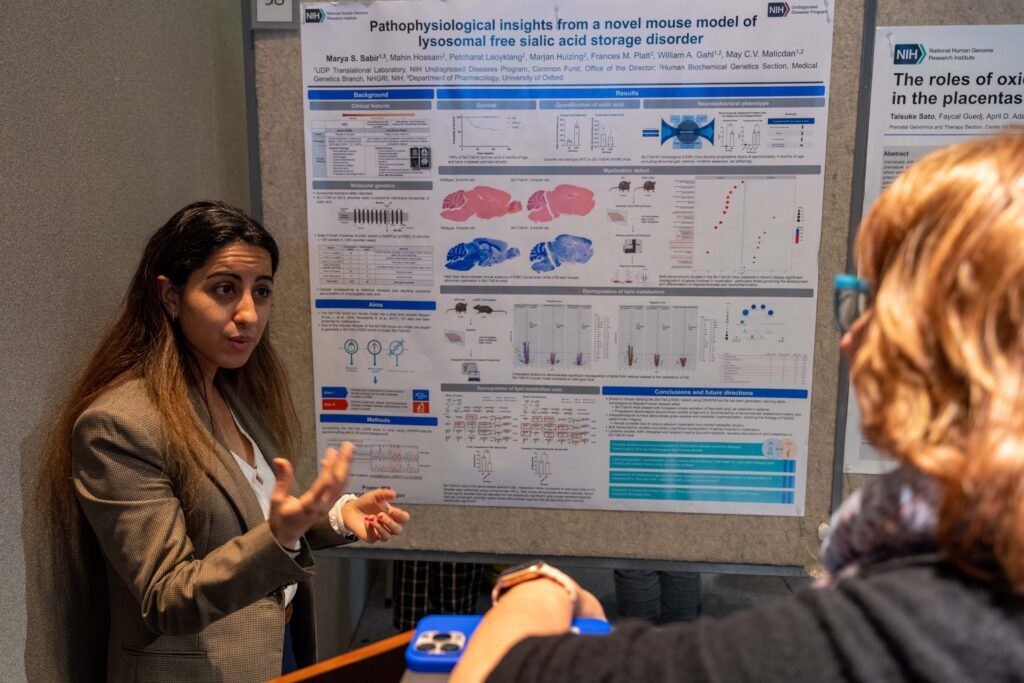by Marya Sabir
This year marked the 30th Anniversary Celebration of the launch of the National Human Genome Research Institute (NHGRI) Intramural Research Program. This year’s annual symposium featured intramural trainee talks on diverse topics, a provider-patient session, the annual Jeffrey M. Trent Lecture in Cancer Research presented by Dr. Todd Golub (Director of the Broad Institute of Harvard and MIT), and two poster sessions encompassing 125 posters, amongst other events.
With travel award funding from IBRA, Marya Sabir, a final-year NIH-Oxford Scholar, was able to attend the symposium in person at the Natcher Conference Center in Bethesda, MD. The two-day meeting started with a choreographed dance to Dua Lipa’s “Dance The Night” (from the Barbie movie), setting a high-energy tone for the entire meeting.

Marya was one of ten trainees selected to give a lightning talk at the symposium, describing her research using one slide in two minutes.

After the lightning talk, she presented her research describing novel mouse and cell-based disease models for a rare lysosomal storage disorder called free sialic acid storage disorder. During the poster session, she was able to discuss her work with attendees from diverse research backgrounds and expertise, ranging from postbac trainees to principal investigators. One of the poster attendees even commented that they might consider using a mouse model her team generated for their own studies in an entirely different field. She was awarded a Best Poster Award in the “Traditional Scientific” section, one of ten awardees.

In addition to presenting her work, she and a few other trainees were allowed to participate in a trainee lunch with the keynote speaker, Dr. Todd Golub. In addition to sharing her research focus with the group, she had the opportunity to learn about Dr. Golub’s career and wise words of encouragement.
When asked about this experience, Marya expressed “Attending the NHGRI Symposium this year was a brilliant experience. The ability to interact with so many people from diverse backgrounds and expertise across the entire institute was invaluable, an experience that is difficult to recapitulate in the virtual setting. I learned about the range of work the institute does while also getting feedback on my thesis research. Thank you to the IBRA for funding me to attend this meeting which would not have been possible without their support.”
If you are interested in applying for a travel award, please reach out to Alexandra Ambrico, Director of Communication, Education, and Professional Development, at [email protected], for the eligibility requirements and application.

